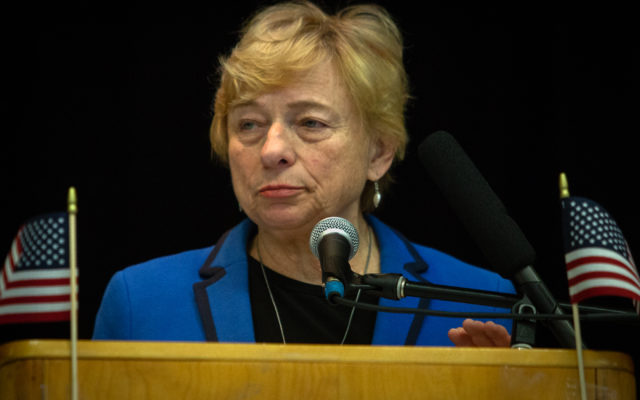
Mills Administration provides guidelines to resume full-time, in-person learning in fall
Administration also encourages schools to participate in Maine free pooled testing program
AUGUSTA — The Mills Administration today informed Maine School Administrative Units that it expects all schools to offer full-time, in-person learning this fall.
In its priority notice, which provides planning guidance to schools for educational programming this summer and next fall, the Maine Department of Education announced that remaining physical distancing requirements will be relaxed next school year and that schools should offer full-time, in-person learning in the fall as a result.
The Department of Education also strongly encourages schools to participate in Maine free pooled testing program. Offered to all schools, the testing option will protect those students for whom a COVID-19 vaccine has not yet been authorized and will minimize education disruption and exclusion from extracurricular activities for a student or staff member who is quarantined after being identified as a close contact.
“Classroom instruction is critical for the social and mental development of our kids,” said Gov. Janet Mills. “School administrators and teachers have worked hard all year to protect their students from the virus, provide them with a good education, and meet many of their other needs. With the progress we’ve made in vaccinating Maine people, we want to make sure that there are no barriers to getting our kids back into the classroom full-time.”
“Schools have worked tirelessly all year to safely provide for the academic, nutritional and social emotional needs of their students, and will welcome these next steps toward a return to business as usual,” said Pender Makin, Commissioner of the Maine Department of Education. “While we still have students who will return to school this summer or in the fall who are not yet eligible for vaccination, the lessons learned from this school year, along with additional safety options such as pooled testing, will ensure a healthy and joyful return to the classrooms.”
“Getting all students back in classrooms full time this fall will be possible with vaccination progress and tools like pooled COVID-19 testing,” said Jeanne Lambrew, commissioner of the Maine Department of Health and Human Services. “Safety protocols will continue to be needed, though, to protect students, school staff, and teachers from COVID-19 which continues to pose a public health threat.”
Additionally, the Administration updated Maine PK-12 and Adult Education Public Health Guidance for summer 2021 school programs to eliminate the remaining distancing requirements for schools and programs that participate in the pooled testing program. Other health and safety protocols remain in effect for summer programming.
The Maine Department of Education also announced that it will provide grant funding to support summer implementation of the pooled testing program. As of June 9, 33 organizations — including 88 schools and camps encompassing an estimated 27,795 students, 2,802 teachers, and 2,012 staff — are participating in pooled testing.
Since the fall of 2020, nearly all Maine preK-12 schools have been providing in-person instruction to students and have been successful at limiting COVID-19 transmission, keeping new case rates in schools significantly below that of the statewide average.
With Maine significant progress in vaccinating its population and reducing the spread of COVID-19, the Administration has been gradually relaxing physical distancing requirements in schools that participate in the pooled testing program, beginning last month with the three first distance requirement in classroom space.
Vaccination continues to be the best strategy to reduce the transmission and impact of the COVID-19 virus. On May 10, youth ages 12 to 15 were authorized to receive the Pfizer vaccine. As of June 8, 39 percent of Maine youth in this age group had received a first dose and 16 percent had received final doses.
Schools have also supported vaccination efforts by hosting vaccination clinics either onsite or in partnership with other clinics and by providing information to families about why, how and where to receive a vaccine.